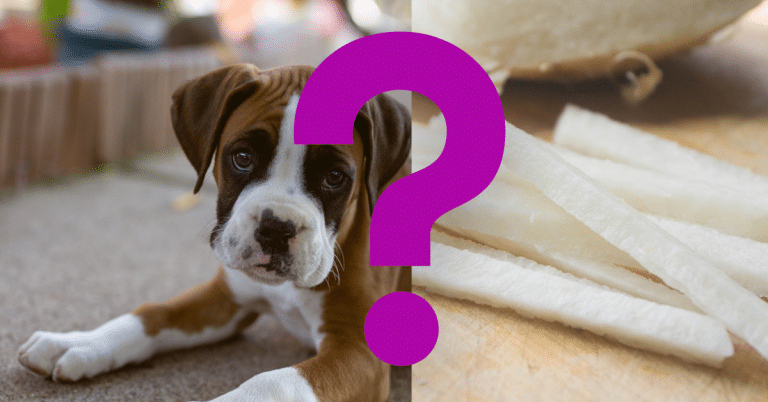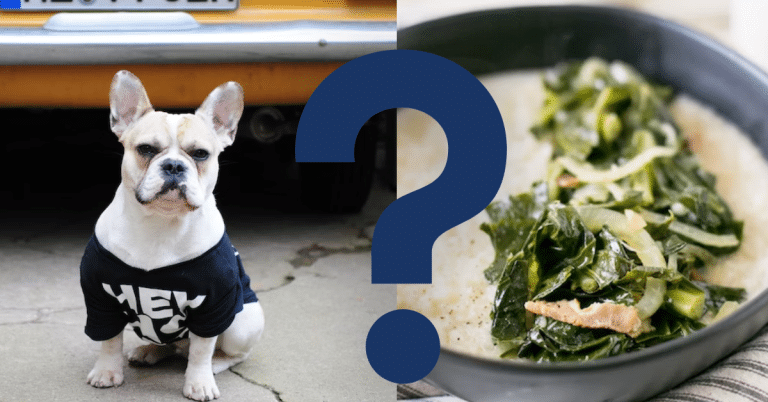Can Dogs Eat Cucumbers? A Vet’s Opinion

Cucumbers are a type of vegetable that belongs to the gourd family. We all know how healthy they are, but can you feed cucumbers to your dog?
Dogs can indeed eat cucumbers. A nutritious snack, cucumbers can give dogs vitamins and minerals. Cucumbers also contain a lot of water, which can help your dog stay hydrated. It’s also vital to remember that certain dogs might not enjoy their flavor.
Benefits Of Cucumbers For Dogs
Cucumbers can provide several health benefits for dogs when fed in moderation. Here are some potential benefits:
- Hydration: Cucumbers are rich in water content, which can help keep your dog hydrated, especially during hot weather or after physical activity. Proper hydration is essential for dogs as it helps regulate body temperature, digestion, healthy skin, and organ function.
- Helps with weight management: Cucumbers are a low-calorie food, making them an excellent option for dogs needing to lose or maintain a healthy weight. Low-calorie snacks can be used to reinforce positive behavior during training as a reward. They can be given more often without the danger of overfeeding because they contain fewer calories as opposed to many conventional dog treats, which may also contain harmful substances such as sugar.
- Vitamins and minerals: Cucumbers are a good source of minerals and vitamins, including vitamin K, vitamin C, and potassium, which can help support your dog’s overall health, and are essential nutrients for bodily functions. Vitamin A is vital for maintaining healthy vision, skin, and immune system function in dogs. It is also necessary for proper growth and development. Vitamin C is an antioxidant that protects the body from free radicals. Potassium is essential for maintaining proper fluid balance and nerve and muscle function in dogs.
- Promotes healthy digestion: Cucumbers contain fiber, aiding digestion and promoting bowel regularity. A healthy dog has good energy levels, can engage in everyday activities without excessive fatigue or lethargy, and shows enthusiasm for food.
- Supports dental health: Chewing on cucumber slices can help promote dental health by removing plaque from your dog’s teeth.
- Freshens breath: Cucumbers have a naturally refreshing and cooling effect on the breath, which can help freshen a dog’s breath and reduce foul odors in the mouth.
- Lowers risk of urinary tract infections: Cucumbers have natural properties which can help flush out bacteria and prevent the formation of urinary tract infections (UTIs) in dogs.
It’s important to note that while cucumbers can be a nutritious addition to your dog’s diet, they should not be used as a substitute for a balanced and complete diet.

How To Safely Give Cucumbers To Dogs?
To properly give your dog cucumbers, follow the instructions listed below.
- Pick ripe, fresh cucumbers: Look for firm, brilliant green, and fresh cucumbers. Cucumbers that are soft or yellow or have creases or blemishes should be avoided. If taken in excessive quantities, unripe cucumbers can be harmful to dogs due to cucurbitacin, a toxic and bitter substance present in unripe cucumbers that can upset a dog’s stomach and potentially poison it.
- Cucumber cleaning and peeling: Thoroughly rinse the cucumber in cold water to remove any dirt or debris. Peel the cucumber after that to get rid of the rough skin. Because cucumber skin is fibrous and thick, it might be difficult for dogs to break down unpeeled cucumbers and digest them, irritating your dog’s stomach and making it throw up or have diarrhea.
- Remove the seeds: Use a spoon or a knife to scoop out the seeds from the cucumber. The seeds can be difficult for dogs to digest and can also pose a choking hazard.
- Cut the cucumber into small pieces: Slice the cucumber into small, bite-sized pieces that are easy for your dog to chew and swallow. Avoid giving your dog large chunks or whole cucumbers, which can be challenging to digest.
- Introduce the cucumber gradually: It is always better to start small. Start by giving your dog a small piece of cucumber and observe their reaction. If they tolerate it well and show no signs of digestive upset, you can gradually increase the amount over time.
- Limit the amount of cucumber: While cucumbers are generally safe for dogs to eat, they should be given in moderation as a treat or supplement to their regular diet. Too much cucumber can cause digestive upset or diarrhea.
- Keep an eye out for symptoms of intestinal distress.: Monitor your dog after feeding them cucumber for any signs of digestive upset, such as diarrhea, vomiting, or abdominal discomfort. If your dog experiences any of these symptoms, stop feeding them cucumber and consult with your veterinarian.
While cucumbers are an excellent food source, it is recommended to contact your veterinarian before introducing new foods to your dog’s diet if they have a history of food allergies.
Will Cucumbers Make A Dog Sick?
Cucumbers are generally healthy for dogs to eat and are not known to be harmful or sickening. But some dogs could be susceptible to certain foods, like cucumbers, and might feel uncomfortable or sick if they consume too much.
Gradually introducing cucumbers into your dog’s diet and feeding them in moderation is essential to avoid any potential digestive issues. Start by giving your dog a small piece of cucumber and observe their reaction. If they tolerate it well and show no signs of digestive upset, you can gradually increase the amount over time.
It’s also essential to remove the skin and seeds from the cucumber before feeding it to your dog, as these parts can be difficult for dogs to digest and can cause digestive upset. Additionally, it’s best to cut the cucumber into small pieces to make it easier for your dog to chew and swallow.
While it’s generally safe and nutritious for dogs to consume cucumbers in moderation, avoiding overfeeding them with this snack is vital. Overfeeding on cucumbers can upset your dog’s stomach, lead to dehydration and malnutrition, and even worsen some medical conditions. If you notice any signs of digestive upset in your dog, such as vomiting, diarrhea, or abdominal discomfort, stop feeding them cucumbers and consult your veterinarian.

Vet’s Summary
Cucumbers are safe for dogs to eat as they are a healthy source of vitamins and minerals, and they can also help keep dogs hydrated. However, it’s important to remember that not all dogs might enjoy the taste of cucumbers and that cucumber seeds can be a choking hazard. Therefore, removing the seeds and cutting the cucumber into small, bite-sized pieces is essential. Cucumbers should be given to dogs in moderation, and excessive consumption could irritate their stomach. If a dog shows signs of digestive upset, such as vomiting or diarrhea, after eating cucumbers, they should be given only in small amounts or avoided altogether. It is always better to contact a veterinarian before introducing any new food to your dog’s diet, especially if they have a history of food allergies.
Cucumbers do not naturally contain probiotics. However, cucumbers do contain dietary fiber, which can promote digestive health. Probiotics are live microorganisms, usually bacteria, that are beneficial for the digestive system and overall health. Prebiotics are thought to be present in cucumbers. Prebiotics are different types of dietary fiber that probiotics, the good bacteria that reside in our gut, use as nourishment. Cucumbers don’t have a lot of prebiotics, but they do have pectin, a form of soluble fiber that can function as one in the gut.
Videos To Watch
Can dogs eat cucumbers? Find out by clicking the link below:
Do you want to see how a dog reacts to cucumbers? Then click on the link below:






